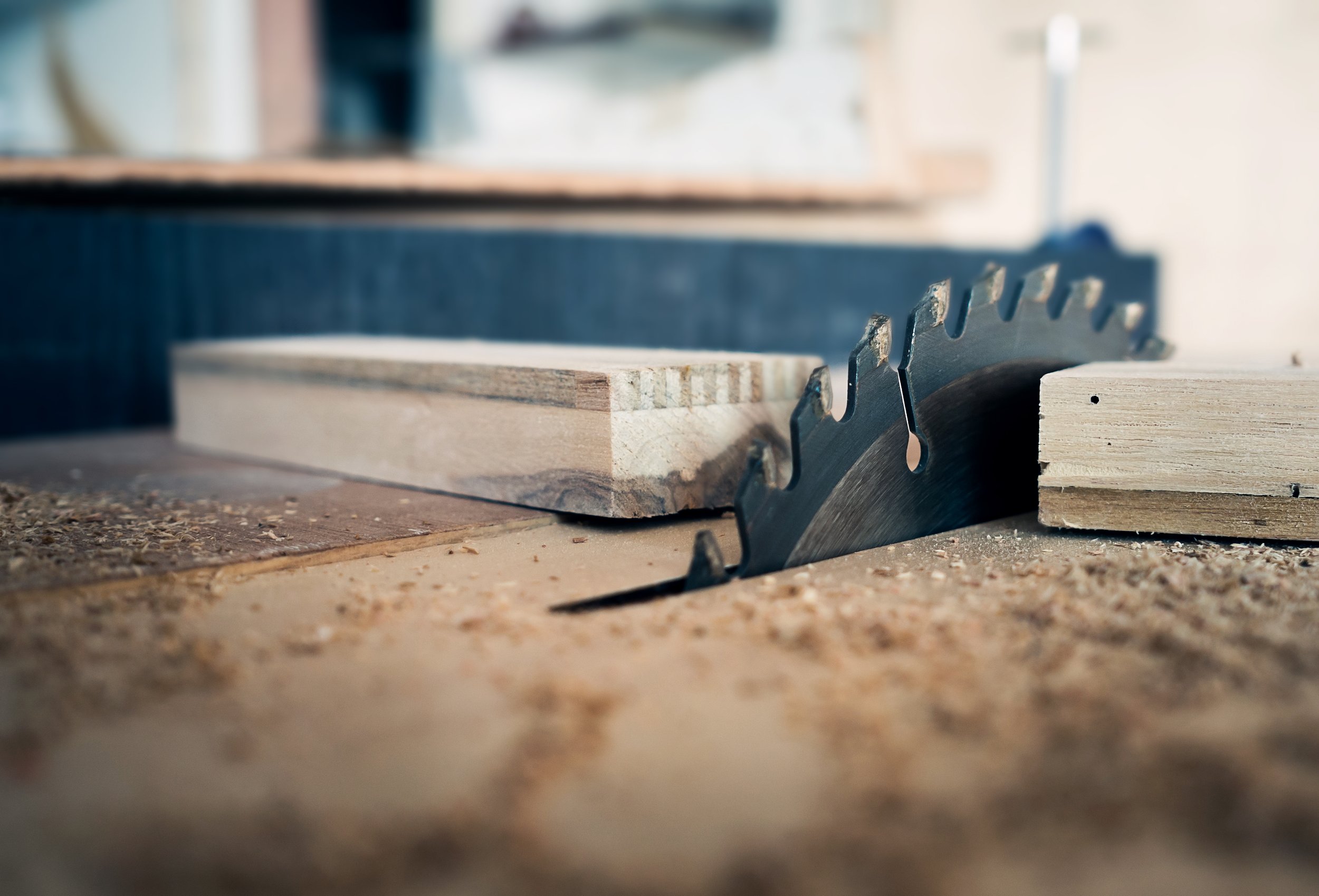
Toolbox Talk: Power Saws
Know your power saw—read the owner's manual carefully, learn the applications and limitations, as well as the specific potential hazards peculiar to the tool. Ground all tools, unless they are double insulated. If the tool is equipped with a three-prong plug, it should be plugged into a three-hole receptacle. Never remove the third prong.
Keep guards in place and in working order. Avoid dangerous environments and don't use the saw in wet locations. Make sure you have adequate light to work in. Safety and efficiency go hand in hand. A power saw in good condition, with a sharp blade, is not only safer but does a faster and better job. Choose the right saw for the work you're doing—if in doubt, check with your supervisor.
If you're using a table saw, make sure the saw and motor frame are properly grounded. Keep your body out of line with the lumber being sawed. Use a pusher stick when feeding lumber near the blade. Use a brush to remove scrap from the table—not your hands. Shut off the power while adjusting the saw hood or gauge. Lock power controls in the off position (and where possible, unplug the electric cord) before changing saw blades. Be sure there is no play in the arbor.
As with any other operation, get help when sawing long material. Always keep the area around the saw free of loose material that can cause tripping. Wear proper apparel—no loose clothing or jewelry to get caught in moving parts. Wear suitable eye protection when using power saws. Safety glasses are a must—a stray splinter or wood chip can cause injury or even the loss of an eye.
Finally, never force a power saw—always use the right size tool for the job. Don't abuse the cord—never carry the saw by the cord or yank it to disconnect from the receptacle. Avoid accidental starting—don't carry a plugged-in power saw with your finger on the switch.
Guards are there for your protection. Never bypass or remove a guard or any other safety device on your power saw.

